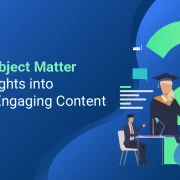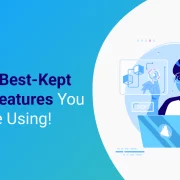These are the principles and standards that are relevant to eLearning. These standards include SCORM and xAPI, often known as Experience API. These standards provide interoperability between your LMS and your content.
Q: What are e-learning standards?
A: Technical requirements and recommendations for developing and delivering digital learning systems and content are known as e-learning standards. By the use of these standards, it is made possible for various e-learning tools and systems to connect with one another and for content to be easily transferred between various platforms and devices.
Q: Why are e-learning standards important?
A: E-learning standards guarantee the interoperability and compatibility of various e-learning systems and technologies, allowing content producers and students to utilize them interchangeably without running into problems. Standards also guarantee that content is usable and accessible by those who have disabilities.
Q: What are some common e-learning standards?
A: SCORM (Sharable Content Object Reference Model), AICC (Aviation Industry CBT [Computer-Based Training] Committee), and xAPI are examples of common e-learning standards (Experience API or Tin Can API).
Q: Why is it important to adhere to elearning standards?
A: By following e-learning standards, content can be readily shared and reused across many platforms and devices, which lowers the cost of content development and gives students a consistent learning experience.
Q: What are the benefits of using e-learning standards?
A: Implementing e-learning standards offers several benefits, including improved efficiency, consistency, and interoperability of content across different platforms and devices. These standards ensure that e-learning materials are accessible and usable for all learners, regardless of their abilities or technological setup. By adhering to recognized guidelines, educational organizations can enhance the learning experience and ensure compatibility with various systems. Additionally, e-learning standards promote collaboration and innovation within the sector, driving continuous improvement in digital education tools and methodologies, ultimately leading to a more effective and inclusive learning environment.




